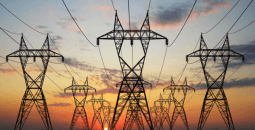

After numerous attempts to implement fixed charges to cover the cost of distributing electricity to prepaid customers, the City of Johannesburg’s City Power has begun charging these customers a total of R200, excluding value-added tax (Vat) per month (R230 including Vat), effective 1 July.
It last attempted to implement these charges in 2021.
Until now, the city has not recovered most (any?) of the underlying costs of providing the network to its 250 000 prepaid residential customers.
This has led to a completely untenable and illogical situation where postpaid/credit customers pay among the most for electricity in the country while prepaid customers pay among the least.
In effect, it is subsidising its prepaid customers and servicing them below what it costs to actually supply the power (as confirmed by its cost of supply study).
From July, postpaid customers across most domestic tariff options pay R985.37 per month for City Power’s capacity charge (R719 and R791 on basic connections) and R244.20 as a service charge.
That’s R1 230 in fixed charges before a single kilowatt is consumed.
City Power acknowledges this huge disparity between the two groups of customers: “Compared to [the] residential conventional customer, the prepaid customer contribution to network availability cost is still very inadequate and require[s] substantial increase in the next three to five years to fully align to the conventional tariff.”
In other words, expect these fixed charges to increase sharply in the coming years.
Indigent customers
In an attempt to shield lower-income (specifically ‘indigent’) households from this charge, it has split prepaid customers into two categories: prepaid (low) and prepaid (high). The prepaid (low) category is not yet subjected to any fixed charges.
To ensure that high-usage customers don’t migrate to this tariff to take advantage of this, it has increased the tariff for any usage above 500kWh by higher than the average increase. The change is 17.72% for any usage above this level versus 12.72% on the prepaid (high) tariff.
Households also need to be specifically registered as indigent (earning less than R6 000 per month) to qualify for this tariff.
The tariff changes were proposed in March. It says that based on ‘average’ usage, prepaid (low) or indigent customers will effectively see a 6.36% increase in the cost of electricity. Prepaid (high) customers will see an 18.84% jump.
| Tariff changes (excluding Vat) |
|||||
| 800kWh of usage | 1 July 2023 | 1 July 2024 | Change | ||
| Tariff | Rand | Tariff | Rand | ||
| Block 1 (350kWh) | 209.67 | R733.85 | 236.34 | R827.19 | 12.72% |
| Block 2 (500kWh) | 240.51 | R360.77 | 271.01 | R406.65 | 12.72% |
| Block 3 (>500mWh) | 274.05 | R822.15 | 308.91 | R926.73 | 12.72% |
| Sub-total | R1 916.76 | R2 160.57 | 12.72% | ||
| Service charge | – | R70 | n/a | ||
| Capacity charge | – | R130 | n/a | ||
| Total (excl. VAT) | R1 916.76 | R2 360.57 | 23.15% | ||
| Total (incl. VAT) | R2 204.27 | R2 714.66 | 23.15% | ||
On a practical basis, the R200 in fixed charges will be ‘subtracted’ on the first of each month. If a customer’s balance is insufficient to cover this charge, the remainder will be deducted from their next recharge. If a customer only recharges with R200, half of this amount will be allocated to the fixed charges, with the remainder going towards units.
Any amount owing for the fixed charges (i.e. not paid in the case of vacant premises) will be carried forward to the next month.
More broadly, City Power says the tariff changes for this financial year seek to “limit the increase to energy charges”, i.e. the cost per kilowatt hour, “and allow additional increase to service and capacity charges all customer categories to start reducing the volumetric risk”. In other words, it seeks to recover costs even as many of its customers consume less energy, as they supplement supply with sources such as photovoltaic solar generation. – moneyweb.co.za